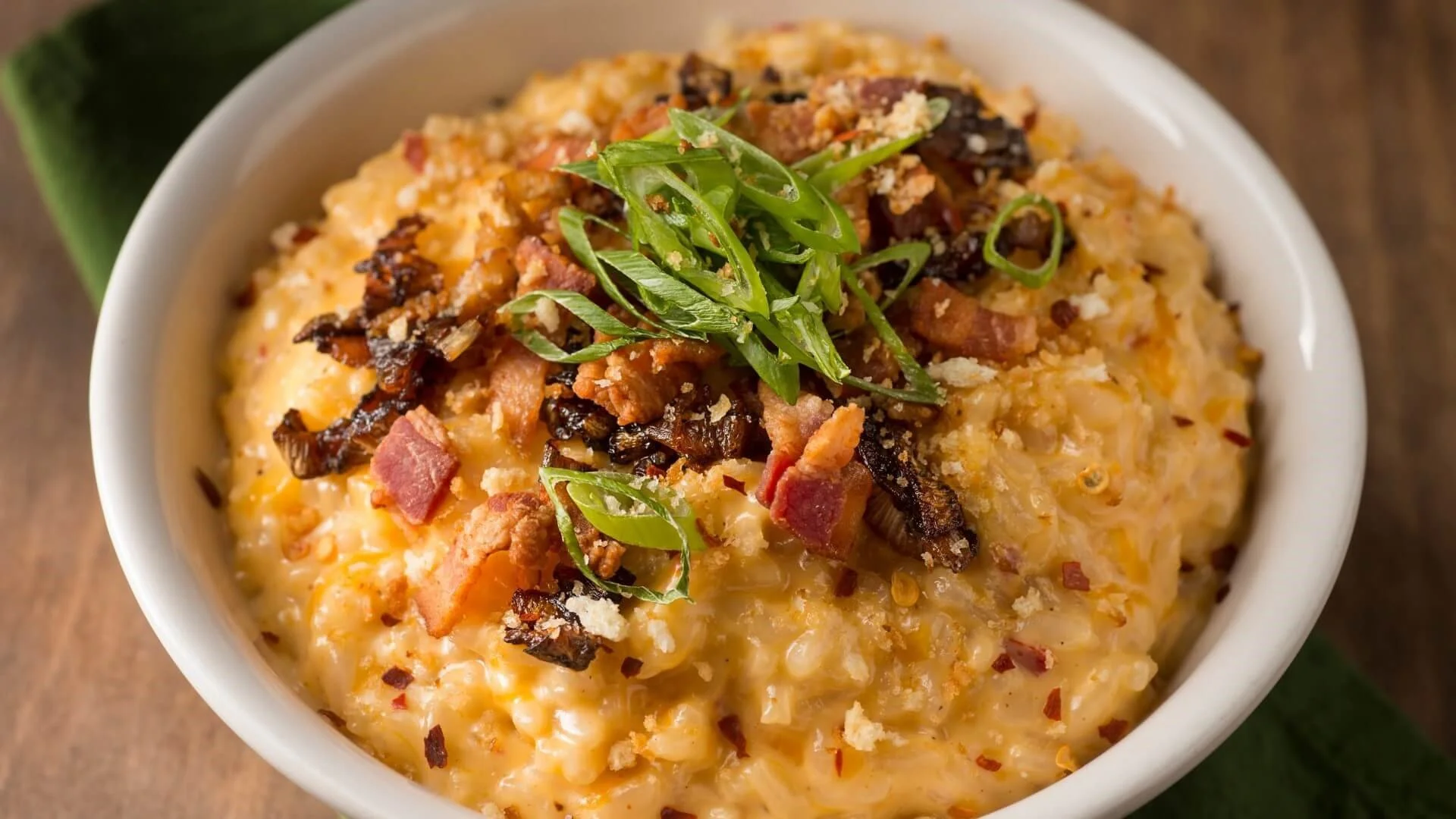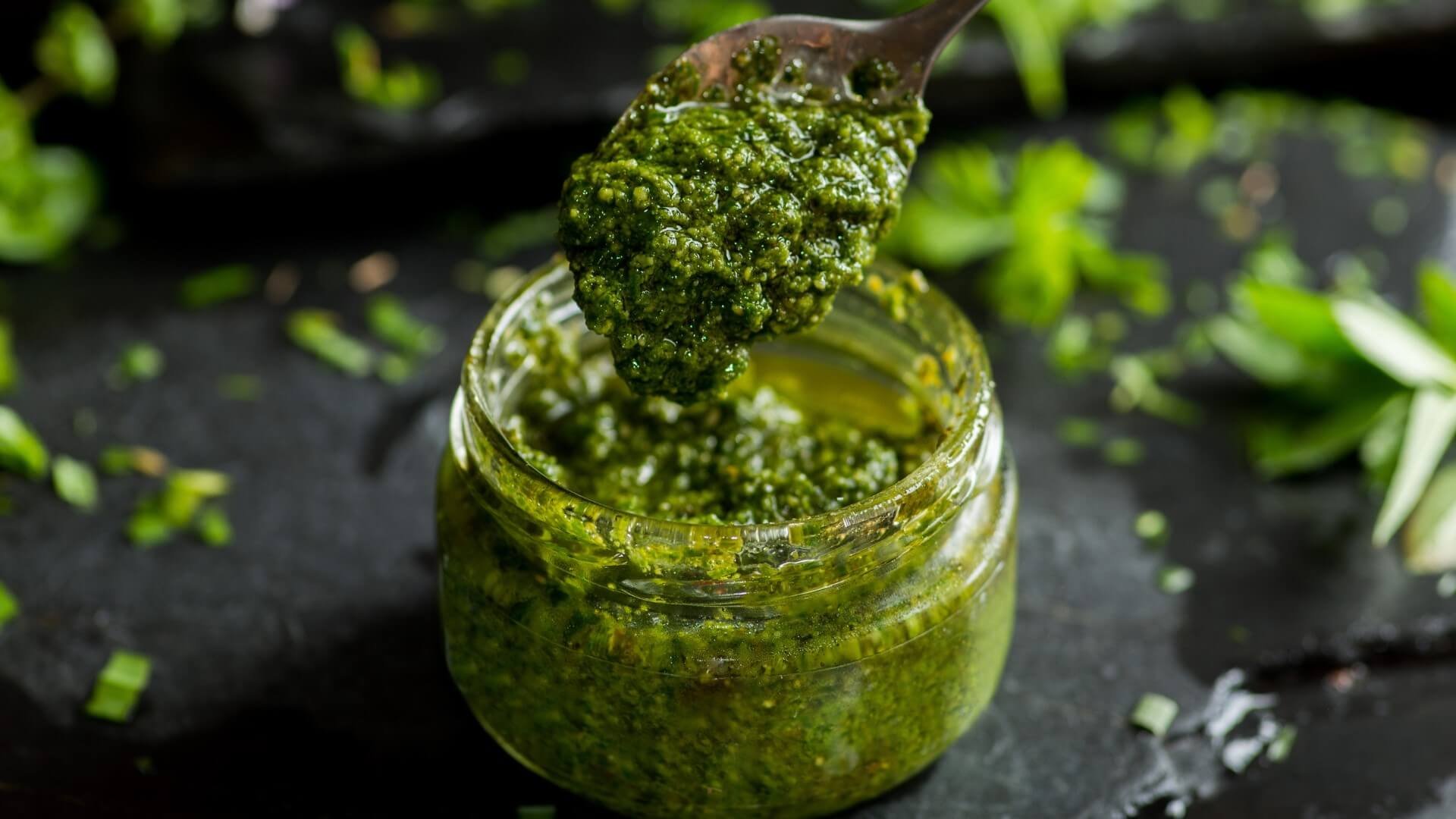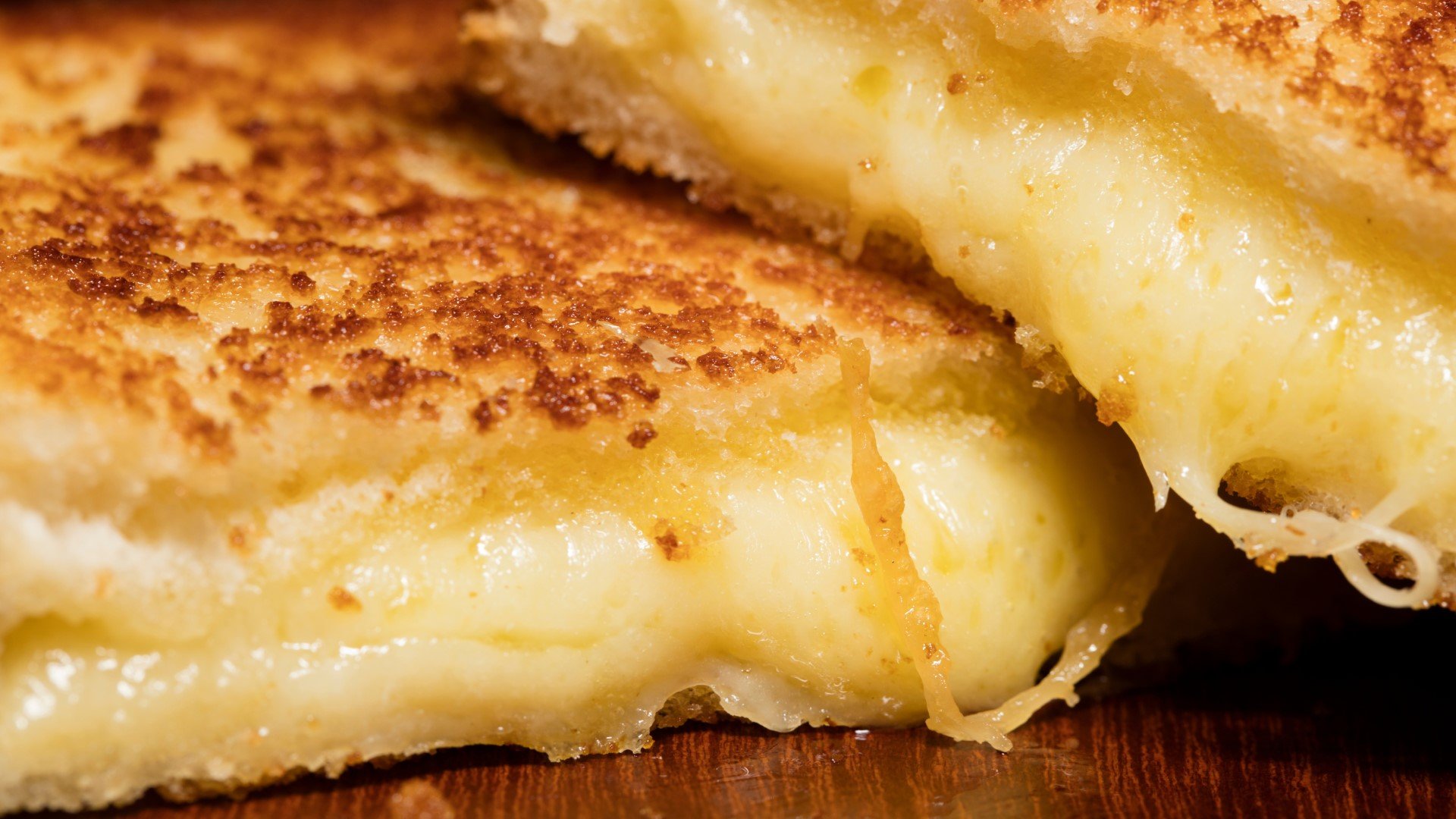Nutritional Yeast Benefits & How to Use It (It’s Not Just for Vegans)
This site contains affiliate links to products. I may receive a commission for purchases made through these links. However, this does not impact my reviews and comparisons. I highlight products I use and recommend to friends. Please see disclosures.
But also great for vegans!
Nutritional yeast, aka “nooch,” is trending (rightfully so!) for its unique cheesey flavor and impressive nutritional profile - it adds tons of B vitamins to any dish to up the flavor without any dairy.
Whether you're a seasoned vegan, health-conscious individual, or a curious foodie, you've likely encountered this versatile ingredient in various recipes. In this blog post, we'll explore the origins and composition of nutritional yeast, delve into its numerous health benefits, and give some ideas for incorporating it into your favorite dishes.
What is Nutritional Yeast?
The nerdy part: nutritional yeast, scientifically known as Saccharomyces cerevisiae, is a species of yeast commonly used in the food industry. Unlike brewer's yeast, which is a byproduct of the beer-making process, nutritional yeast is cultivated specifically for its nutritional content. It undergoes a fermentation process, during which the yeast is grown on a nutrient-rich medium, typically consisting of sugar cane and beet molasses.
How Does It Taste?
One of the key reasons nutritional yeast has become a staple in many kitchens is its distinctive cheese-like flavor. This makes it an excellent addition to recipes needing a savory, umami kick, especially for those looking to replicate cheesy flavors in plant-based dishes.
Nooch Nutrition
Hello, B Vitamins!
Nutritional yeast is a powerhouse of B vitamins, making it a valuable addition to a balanced diet. It is particularly abundant in vitamin B12, a nutrient that is often challenging to obtain from plant-based sources. Vitamin B12 is crucial for nerve function, red blood cell formation, and overall energy metabolism. Here are the other B vitamins it contains:
Thiamine (B1): Essential for energy metabolism and nerve function.
Riboflavin (B2): Important for energy production and cellular function.
Niacin (B3): Supports skin health, nerve function, and digestion.
B6: Involved in amino acid metabolism and neurotransmitter synthesis.
Folate (B9): Important for DNA synthesis and repair, cell division, and the formation of red blood cells.
B12: This is a critical vitamin, especially for vegans and vegetarians, as it's primarily found in animal products. Some nutritional yeast products are fortified with B12.
In addition to the B’s, it has some important minerals:
Zinc: Essential for immune function, protein synthesis, DNA synthesis, and cell division.
Selenium: Acts as an antioxidant and is important for thyroid hormone metabolism.
Iron: Necessary for oxygen transport in the blood and energy production.
Magnesium: Involved in over 300 biochemical reactions in the body, including energy production, protein synthesis, and muscle and nerve function.
Copper: Important for energy production, connective tissue formation, and neurotransmission.
And if you want to reduce your meat intake, nutritional yeast is a great option for protein.
It contains all nine essential amino acids, and with approximately 2 grams of protein per tablespoon, it can contribute to meeting your daily protein requirements. These two things make it a valuable addition to vegetarian and vegan diets.
Many brands are also fortified with additional nutrients, such as folic acid and vitamin B6. These fortifications enhance its overall nutritional content, providing an extra boost to your daily nutrient intake.
Benefits of Nutritional Yeast
Supports Immune Health
The high concentration of B vitamins in nutritional yeast, including B12, plays a crucial role in supporting a healthy immune system. Adequate intake of these vitamins is essential for the production and function of immune cells, helping the body defend against infections and illnesses.
Enhances Digestive Health
Nutritional yeast is a rich source of dietary fiber, promoting a healthy digestive system. Among other things, fiber supports the growth of beneficial gut bacteria. This contributes to overall gut health and may even help prevent certain digestive disorders.
Boosts Energy Levels
As a significant source of B vitamins, nutritional yeast actively participates in energy metabolism. These vitamins help convert food into energy, providing a natural boost to your energy levels. Incorporating nutritional yeast into your diet may help combat fatigue and improve overall vitality.
Supports Heart Health
The composition of nutritional yeast includes a type of soluble fiber known for its heart health benefits. This fiber has been linked to lower cholesterol levels, which, in turn, can contribute to a reduced risk of cardiovascular diseases. Including nutritional yeast in your diet may be a flavorful way to support heart health.
How to Cook with Nutritional Yeast
With its cheesy, nutty flavor , here are 20 recipes where you can incorporate nutritional yeast - I made them all vegan, but you can use regular cheese, etc. if you aren’t vegan!
1. Vegan Cheese Sauce: Blend soaked cashews, water, nutritional yeast, garlic powder, onion powder, and salt for a creamy cheese sauce.
2. Vegan Mac 'n' Cheese: Make a creamy sauce using nutritional yeast, plant-based milk, vegan butter, and spices, then mix with cooked pasta.
3. Cheesy Popcorn: Sprinkle popped popcorn with melted vegan butter or olive oil and nutritional yeast for a cheesy flavor.
4. Roasted Vegetables: Toss vegetables like broccoli, cauliflower, or Brussels sprouts in olive oil, nutritional yeast, garlic powder, and roast until crispy.
5. Vegan Parmesan Cheese: Blend nutritional yeast with raw cashews, garlic powder, and salt to make a dairy-free Parmesan cheese.
6. Garlic Bread: Mix melted vegan butter with minced garlic, nutritional yeast, and parsley. Spread on sliced bread and toast until golden.
7. Vegan Caesar Salad Dressing: Blend nutritional yeast, garlic, Dijon mustard, lemon juice, olive oil, and salt for a creamy Caesar dressing.
8. Vegan Pesto: Combine fresh basil, pine nuts, garlic, olive oil, nutritional yeast, and salt in a food processor for a dairy-free pesto sauce.
9. Vegan Tofu Scramble: Crumble tofu and sauté with turmeric, nutritional yeast, garlic powder, and veggies for a plant-based breakfast scramble.
10. Garlic Knots: Mix nutritional yeast, olive oil, garlic powder, and herbs. Brush onto dough knots before baking.
11. Spaghetti Aglio e Olio: Toss cooked spaghetti with olive oil, minced garlic, red pepper flakes, parsley, and a generous sprinkle of nutritional yeast.
12. Vegan Creamed Spinach: Sauté spinach with garlic, onions, plant-based cream, and nutritional yeast for a creamy, cheesy side dish.
13. Roasted Chickpeas: Coat chickpeas in olive oil, nutritional yeast, cayenne pepper, and salt. Roast until crispy for a nutritious snack.
14. Quinoa Bowl: Combine cooked quinoa with roasted vegetables, avocado, a drizzle of tahini dressing, and sprinkle with nutritional yeast.
15. Stuffed Mushrooms: Mix breadcrumbs, nutritional yeast, herbs, garlic, and vegan butter. Stuff mushroom caps and bake until golden.
16. Vegan Grilled Cheese: Use nutritional yeast in the cheese filling or sprinkle it between vegan cheese slices before grilling.
17. Potato Wedges: Toss potato wedges in olive oil, nutritional yeast, paprika, and salt. Bake until crispy and golden.
18. Zucchini Chips: Slice zucchini thinly, toss in olive oil and nutritional yeast, and bake until crispy for a healthy snack.
19. Vegan Spinach Artichoke Dip: Blend artichoke hearts, spinach, nutritional yeast, garlic, plant-based cream, and seasonings until smooth. Serve warm with chips or veggies.
20. Savory Oatmeal: Stir nutritional yeast into cooked savory oatmeal along with sautéed vegetables, herbs, and a dash of soy sauce for a hearty breakfast.
21. Vegan Parmesan Pizza Crust: Whip up a quick and easy vegan parmesan by combining nutritional yeast with raw cashews, garlic powder, and a pinch of salt. Sprinkle this savory concoction on pasta, salads, or roasted vegetables for a delightful burst of flavor.
You can also sprinkle on soups, salads, risotto, or pizza!
These are just a few ideas, but the possibilities are endless when it comes to incorporating nutritional yeast into various recipes for added flavor and nutrition.
Nutritional yeast is more than just a trendy ingredient; it's a nutritional powerhouse that adds depth and flavor to a variety of dishes.
Whether you're a seasoned chef experimenting with new flavors or someone looking to boost their nutritional intake, incorporating nutritional yeast into your culinary repertoire is a delicious and health-conscious choice. So, embark on a flavorful journey and discover the countless ways it can transform your meals into nutrient-rich, savory masterpieces.














